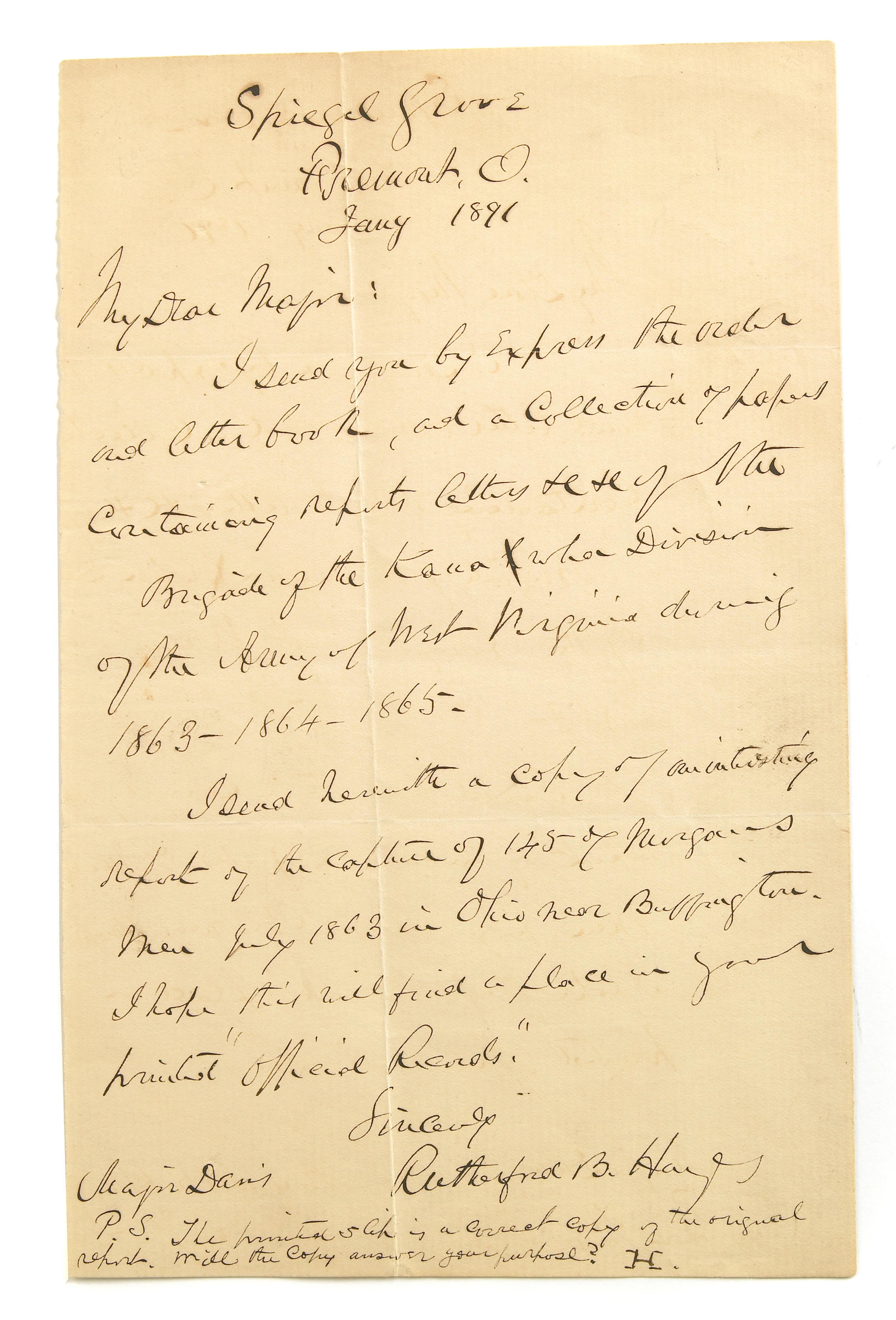HAYES, Rutherford B. Letters and Messages of Rutherford B. Hayes, President of the United States, Together with Letter of Acceptance and Inaugural Address . Washington: [Government Printing Office], 1881. 8 o, later half black morocco and marbled boards, marbled edges. In a half leather cloth box. PRESENTATION COPY, SIGNED AND INSCRIBED on page 3: "Hon. Daniel] Thew Wright, From his friend Rutherford B. Hayes, Spiegel Grove, 9 July 90." This compendium of Hayes's presidential papers includes his Inaugural Address, his Letter of Acceptance to the Republican National Convention, and a host of messages and addresses on aspects of Southern reconstruction policy, his veto of Congress's attempt to revoke the Burlingame Treaty with China, illegal settlements on Indian lands, corruption at the New York Customs House and others. Hayes's contested 1876 election victory over Samuel J. Tilden proved to be the closing act of the Civil War era. Democrats and especially Southerners were enraged when a bi-partisan commission voted 8-7 along strict party lines to award all the contested electoral votes of Florida, Louisiana and South Carolina to Hayes. The new President's decision to pull all U. S. troops out of the region mollified Southern anger and averted a renewal of civil war. Yet the "Compromise of 1877" also opened the way for the emergence of the white supremacist, segregated South. The government's limited efforts to protect the political and economic rights of former slaves were abandoned completely.
HAYES, Rutherford B. Letters and Messages of Rutherford B. Hayes, President of the United States, Together with Letter of Acceptance and Inaugural Address . Washington: [Government Printing Office], 1881. 8 o, later half black morocco and marbled boards, marbled edges. In a half leather cloth box. PRESENTATION COPY, SIGNED AND INSCRIBED on page 3: "Hon. Daniel] Thew Wright, From his friend Rutherford B. Hayes, Spiegel Grove, 9 July 90." This compendium of Hayes's presidential papers includes his Inaugural Address, his Letter of Acceptance to the Republican National Convention, and a host of messages and addresses on aspects of Southern reconstruction policy, his veto of Congress's attempt to revoke the Burlingame Treaty with China, illegal settlements on Indian lands, corruption at the New York Customs House and others. Hayes's contested 1876 election victory over Samuel J. Tilden proved to be the closing act of the Civil War era. Democrats and especially Southerners were enraged when a bi-partisan commission voted 8-7 along strict party lines to award all the contested electoral votes of Florida, Louisiana and South Carolina to Hayes. The new President's decision to pull all U. S. troops out of the region mollified Southern anger and averted a renewal of civil war. Yet the "Compromise of 1877" also opened the way for the emergence of the white supremacist, segregated South. The government's limited efforts to protect the political and economic rights of former slaves were abandoned completely.









.jpg)




Try LotSearch and its premium features for 7 days - without any costs!
Be notified automatically about new items in upcoming auctions.
Create an alert